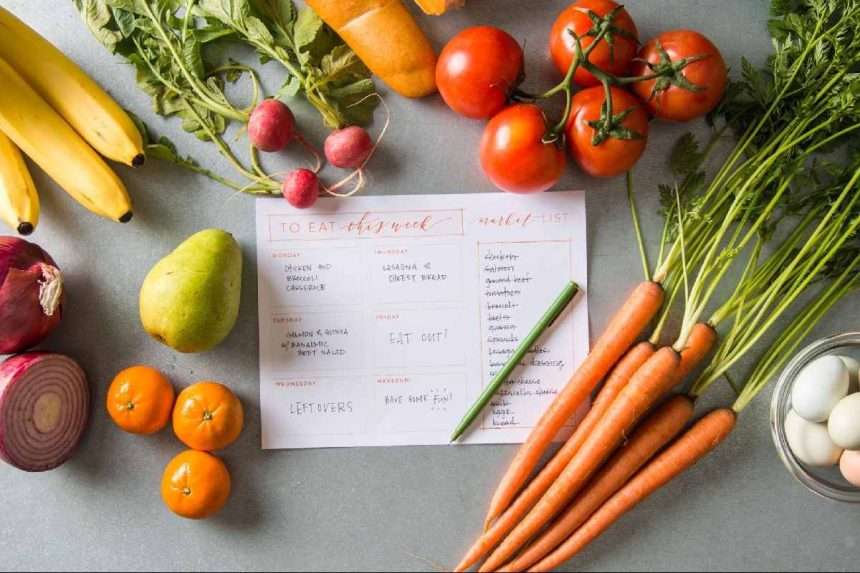How to Create a Sustainable Meal Plan: Tips for Long-Term Success
Building a sustainable meal plan is one of the most effective ways to ensure long-term health and wellness; it not only helps you stay on track with your nutrition goals but also promotes better habits that last a lifetime. However, crafting a plan that is both nutritious and sustainable can be challenging, especially if you’re unsure where to start. Below are some essential tips to help you create a meal plan that supports your health and can be maintained in the long term.
Table of Contents
Start with Balance
A sustainable meal plan begins with balance. Ensure your meals include a healthy mix of proteins, carbohydrates, and fats. Incorporating a variety of food groups ensures you’re getting the nutrients your body needs. For instance, lean proteins like chicken, fish, and plant-based alternatives provide essential amino acids, while whole grains and healthy fats offer sustained energy. Eating a wide range of colourful vegetables and fruits also helps to provide vitamins, minerals, and fibre, keeping your meals both nutritious and satisfying.
Focus on Whole Foods
Processed foods often contain high levels of unhealthy fats, sugars, and preservatives, which can negatively impact your health – instead, prioritise whole, unprocessed foods. These include fresh fruits, vegetables, whole grains, lean meats, and plant-based proteins like legumes and nuts. Whole foods not only provide superior nutrition but are also more filling, reducing the temptation to overeat.
Plan for Variety
One of the challenges of sticking to a meal plan is boredom. To keep things interesting, aim for variety. Rotate your ingredients and try new recipes regularly to avoid falling into a food rut. Experiment with different cuisines and cooking techniques to keep your meals exciting. A varied meal plan also ensures you’re consuming a wide range of nutrients, which is essential for long-term health. If you’re unsure where to start with variety, consulting a nutritionist in Melbourne can help you customise a plan that suits your lifestyle and preferences.
Incorporate Seasonal Produce
Seasonal produce is fresher, more nutrient-dense, and often more affordable than out-of-season alternatives. By incorporating seasonal fruits and vegetables into your meal plan, you can add variety while supporting local farmers and reducing your environmental footprint. Seasonal eating also helps you maintain a connection to nature’s cycles, encouraging mindful eating habits.
Meal Prep for Success
Preparing your meals in advance is a crucial step in ensuring your meal plan stays sustainable. Set aside time each week to plan your meals, create a shopping list, and prep ingredients. You can cook in bulk and store portions in the fridge or freezer, making it easier to stick to your plan even on busy days. Meal prepping saves time, reduces stress, and helps prevent last-minute, unhealthy food choices.
Listen to Your Body
While it’s important to have a plan, flexibility is key to sustainability – your body’s needs can change from day to day, so listen to hunger and fullness cues. If you’re feeling particularly hungry, don’t hesitate to add a healthy snack. Similarly, if you’re not as hungry as usual, allow yourself to eat lighter meals. A sustainable meal plan is one that adapts to your body’s needs over time rather than following strict rules. This approach prevents feelings of deprivation and helps you maintain your plan in the long term.
Stay Hydrated
Hydration is often overlooked when it comes to meal planning, but it plays a crucial role in overall health. Make sure to drink plenty of water throughout the day. Proper hydration supports digestion, helps manage hunger, and boosts energy levels. Herbal teas and water-rich foods like cucumbers, lettuce, and watermelon are also great ways to stay hydrated.
Monitor and Adjust Your Plan
No meal plan is set in stone. Regularly review how your plan is working for you. Are you meeting your nutrition goals? Do you feel energised and satisfied after meals? If not, make adjustments as needed. You may find that certain foods aren’t working well for you, or perhaps your portion sizes need tweaking. Flexibility and willingness to adapt are essential for long-term success.
Creating a sustainable meal plan is not about following a rigid set of rules but rather developing a flexible, balanced approach to eating that nourishes your body and supports your long-term goals
By focusing on whole foods, incorporating variety, and staying mindful of your body’s needs, you can create a meal plan that is both enjoyable and sustainable for life.






